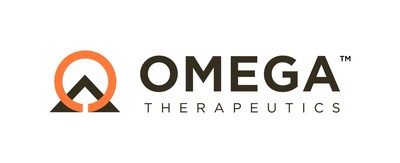Omega Therapeutics Presents New Preclinical Data Supporting the First Epigenomic Controller, OTX-2002, as a Potential Therapeutic Approach in Hepatocellular Carcinoma at the ESMO 2022 World Congress on Gastrointestinal Cancer
- Treatment with epigenomic controller, OTX-2002, resulted in robust in vivo efficacy in xenograft tumor models
- OTX-2002 successfully achieved pre-transcriptional downregulation of hepatocyte MYC gene expression in non-human primates
- Clinical potential of OTX-2002 as a monotherapy or in combination with existing standard-of-care therapies, including immune checkpoint inhibitors
- IND filed by the company to advance OTX-2002 into the clinic
"We are proud to present these new data and add to the wealth of evidence supporting the potential of OTX-2002 as a new treatment option for patients suffering from HCC," said
- In non-human primates, treatment with OTX-2002 resulted in durable reduction of MYC mRNA levels in liver consistent with previous in vitro and in vivo studies
- OTX-2002 treatment decreased MYC mRNA and protein levels and cell viability in multiple HCC cell lines, while sparing normal cells
- OTX-2002 significantly reduced tumor growth in HCC xenografts models
- OTX-2002 treatment is associated with decreased expression of the immune checkpoint factor PD-L1 in HCC cells, suggesting a potential role for combination therapy with immune checkpoint inhibitors
- Combining OTX-2002 with existing standard of care therapies for HCC resulted in further reduction of cell viability and tumor burden in both in vitro and in vivo HCC models, respectively
- OTX-2002 treatment demonstrated synergistic activity with AKT inhibition in HCC cells, highlighting additional possible combination approaches
The poster can be viewed on the Omega website at https://omegatherapeutics.com/our-science/#publications-research
OTX-2002 is a first-in-class Omega Epigenomic Controller™ in development for the treatment of HCC. OTX-2002 is an mRNA therapeutic delivered via lipid nanoparticles (LNPs) and is designed to downregulate MYC expression pre-transcriptionally through epigenetic modulation while potentially overcoming MYC autoregulation. The MYC oncogene is associated with aggressive disease in up to ~70% of patients with HCC. An IND application for OTX-2002 for the treatment of HCC has been submitted to the FDA.
For more information, visit omegatherapeutics.com, or follow us on Twitter and LinkedIn
This press release contains forward-looking statements within the meaning of the Private Securities Litigation Reform Act of 1995. All statements contained in this press release that do not relate to matters of historical fact should be considered forward-looking statements, including without limitation statements regarding our participation in upcoming events and presentations and expectations regarding our business strategy, OTX-2002 and product candidate pipeline, including efficacy, trial design, regulatory submissions, approvals and timing thereof, and the initiation of preclinical studies and advancement of multiple preclinical development programs. These statements are neither promises nor guarantees, but involve known and unknown risks, uncertainties and other important factors that may cause our actual results, performance or achievements to be materially different from any future results, performance or achievements expressed or implied by the forward-looking statements, including, but not limited to, the following: the novel technology on which our product candidates are based makes it difficult to predict the time and cost of preclinical and clinical development and subsequently obtaining regulatory approval, if at all; the substantial development and regulatory risks associated with epigenomic controller machines due to the novel and unprecedented nature of this new category of medicines; our limited operating history; the incurrence of significant losses and the fact that we expect to continue to incur significant additional losses for the foreseeable future; our need for substantial additional financing; our investments in research and development efforts that further enhance the OMEGA platform, and their impact on our results; uncertainty regarding preclinical development, especially for a new class of medicines such as epigenomic controllers; the fact that our product candidates may be associated with serious adverse events, undesirable side effects or have other properties that could halt their regulatory development, prevent their regulatory approval, limit their commercial potential, or result in significant negative consequences; the impact of increased demand for the manufacture of mRNA and LNP based vaccines to treat COVID-19 on our development plans; difficulties manufacturing the novel technology on which our OEC candidates are based; our ability to adapt to rapid and significant technological change; our reliance on third parties for the manufacture of materials; our ability to successfully acquire and establish our own manufacturing facilities and infrastructure; our reliance on a limited number of suppliers for lipid excipients used in our product candidates; our ability to advance our product candidates to clinical development; and our ability to obtain, maintain, enforce and adequately protect our intellectual property rights. These and other important factors discussed under the caption "Risk Factors" in our Quarterly Report on Form 10-Q for the quarter ended
Contacts
Investor contact:
212.600.1902
ArgotOmega@argotpartners.com
Media contact:
646.751.4361
jbraco@lifescicomms.com
![]() View original content to download multimedia:https://www.prnewswire.com/news-releases/omega-therapeutics-presents-new-preclinical-data-supporting-the-first-epigenomic-controller-otx-2002-as-a-potential-therapeutic-approach-in-hepatocellular-carcinoma-at-the-esmo-2022-world-congress-on-gastrointestinal-cancer-301578399.html
View original content to download multimedia:https://www.prnewswire.com/news-releases/omega-therapeutics-presents-new-preclinical-data-supporting-the-first-epigenomic-controller-otx-2002-as-a-potential-therapeutic-approach-in-hepatocellular-carcinoma-at-the-esmo-2022-world-congress-on-gastrointestinal-cancer-301578399.html
SOURCE

